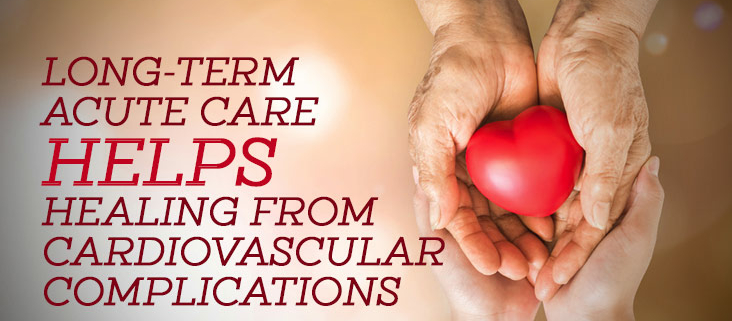Heart disease can cause complications like heart failure, heart attacks, or strokes. When someone experiences an event like this, long-term acute care hospitals (LTACHs) can help.
LTACHs often have cardiovascular programs designed to help patients with chronic or exacerbated cardiac issues like:
- Heart bypass surgery
- Valve replacements
- Abdominal aortic aneurysms
- Complex wound healing … and more.
Patients are referred to LTACHs after initial treatment at “acute care” hospitals when complex medical conditions prevent them from being transferred to lower levels of care, and/or they have more than one serious condition going on.
For example, a patient with heart failure may also be experiencing respiratory failure and could be put on a ventilator to help with breathing.
Heart failure is serious in itself, but now the situation would be even more critical because there’s not enough oxygen passing from the patient’s lungs into the body’s bloodstream. And, the patient would need special medical assistance in healing and weaning from the ventilator.
This is where an LTACH hospital comes in.
LTACH hospitals have specially trained staff and equipment to care for patients with these medically complex needs. Staff members treat situations like this on a daily basis and know how to tailor and provide specialized care to each patient, allowing optimum results and the best chance at recovery.


